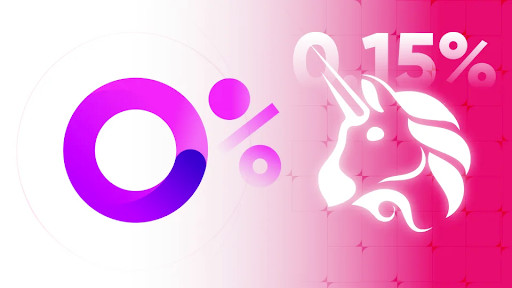Uniswap dominates the DEX landscape on Ethereum, Arbitrum and most other chains where it’s deployed. It’s where memecoins are launched, low cap gems are found, and liquidity lies. If you’re doing serious trading onchain, you can’t avoid Uniswap. There’s just one problem: Uniswap is expensive.
Every time you make a trade on Unswapi, you’re hit by a bunch of “hidden” fees. The network fee – i.e. gas – is the largest of these but there’s also a 1% fee that goes to LPs plus a 0.15% protocol fee that’s claimed by Uniswap. Add them all up over the course of a year and it can equate to thousands of dollars.
That’s a lot of money to be leaving on the table. But as you’ll discover, it’s possible to have your cake and to eat it by accessing Uniswap liquidity without paying Uniswap prices. Here’s how.
Protocols Provide Many Ways to Trade
The beauty with decentralized finance is that it’s permissionless. We normally interpret this to mean that anyone can interact with onchain protocols, regardless of who or where they are. DeFi has no gatekeepers after all. But this also means that any developer is free to build applications that integrate them. As a result, there are many ways to interact with Uniswap aside from through its native front-end – and several of these are discernibly cheaper.
This workaround will shave a chunk off the net fees you pay – and may also provide a better user experience. The trick is to use a DEX aggregator or third-party liquidity router to interact with the Uniswap protocol.
The following aggregators all provide better Uniswap exchange rates than Uniswap itself:
- DefiLlama Swap
- 1Inch
- Orion
So which is cheapest? Right now, it’s Orion. It charges 0% on swaps versus Uniswap’s 0.15%. If you want to double check this, line up a swap in Uniswap and compare it with the same result for Orion, 1inch, DefiLlama or any other DEX aggregator.
Orion wins. The difference might be slight, but if you’re trading 3x per week, that’s ~160 trades a year. Pretty soon those dollar savings add up to serious money. Next time you need to ape into an ERC20 token or load up on ETH, don’t fire up Uniswap and blindly hit Buy. When trading onchain, it pays to shop around.
Other Ways to Save Money on DEX Fees
The DEX you choose to trade on will play a major role in determining the fees you pay per trade. But it’s by no means the only factor in play. The time of day when you trade plays a role, for example. Fees tend to be lower on Sundays when there are typically less network users. Similarly, Ethereum fees will spike during times of high market volatility. When the market is pumping – or crashing – you’ll pay more for executing a swap.
Recommended for you
• Polkadot (DOT) Rockets to New Heights Amid Altseason Surge• Dogecoin’s Meme Magic: Price Poised for 8% Surge Amid Investor Excitement• Goldman Sachs Goes Long on Ripple’s XRP and Calls It the ‘Opportunity of a Lifetime’
Other onchain events, such as popular NFT mints, can also cause network fees to spike. Use a gas tracker to keep tabs on network fees and where possible pick quieter times to trade when network usage is low.
It’s also important to make sure you aren’t overpaying for fees when you go to confirm the swap in your web wallet. Different web wallets calculate network fees using different formulas. Check the actual gwei rate using a gas tracker and, if your wallet is trying to make you pay a higher fee, manually lower it. If you overpay for fees, you’re throwing valuable ETH away.
Trading on Uniswap doesn’t have to be expensive. Pick a cheaper DEX aggregator that sources Uniswap liquidity, optimize the fee settings in your web wallet and you’ll enjoy cost-efficient Uniswap trades.
Read the full article here

